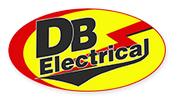If your vehicle is having trouble starting, or perhaps not starting at all, the battery, alternator and starter are three prime suspects. They are certainly not the only causes of hard starts; but if you have narrowed it down to these three, how do you know which one it is? The truth of the matter is that all three can display similar signs when going bad. However, there are some subtle signs that indicate one over the others.
Signs it’s the vehicle’s battery going bad
1) Clicking sounds: If you hear a clicking sound, it could very well be the battery. If the battery has insufficient energy to supply the solenoid, the starter will attempt and fail to get the engine going. The clicking sounds come from the starter.
2) Slow engine turnover: Once again, if the battery lacks power for a quick and efficient engine start, you’ll sense sluggishness in turning over the engine along with a droning sound.
3) Swollen battery case: If the battery case looks like it’s had a few too many cheeseburgers and is looking bloated, it’s a sign that pressure inside is causing it to swell. A battery that looks bloated should be replaced immediately.
4) Bad odor: If your battery is the source of an unpleasant rotten smell, check for leaks that could impair its function.
Signs it’s the vehicle’s alternator going bad
1) Inconsistent lighting: If your lights act strangely with unpredictable flickering, fading or sudden brightness surges, signs point to the alternator malfunctioning. An alternator going bad delivers inconsistent electrical power to the system.
2) Erratically acting electrical accessories: Things like power windows that move in a jerky fashion or a radio that cuts out could be signs of a failing alternator. If these things are happening in your vehicle, consider checking your alternator.
3) Strange noises: If you hear a whining or grinding noise from your engine, check to see if it’s coming from the alternator. These sounds are typical of an alternator that is in decline.
4) Frequent battery failures: If your battery is failing more often than it should, the alternator could be at fault. The alternator and battery work together as a team; and if the alternator is not adequately charging the battery, you might see battery failure with greater frequency.
5) Bad odor: While the bad odor for a failing battery is commonly a rotten eggs smell, for an alternator, it’s more commonly a burning rubber odor.
Signs it’s the vehicle’s starter going bad
1) Clicking sounds: This sign is similar to the bad battery indicator, but you can at least rule out the alternator. You’ll want to look for additional clues as well.
2) Jumpstarts fail: The tried-and-true method for getting a vehicle going with a weak battery is a jumpstart. If that fails, the problem could be the starter instead.
3) Other electronics work fine: If electronics like power windows, radio and lights work fine at full power; but the vehicle has difficulty or refuses to start, that rules out the battery and alternator and looks more like a starter issue.
Diagnosing vehicle electrical problems
Sometimes you need to be a detective to pinpoint which component is failing in your electrical system. The suspects may share similar characteristics. That’s why it’s good to know the subtle tips that can help guide you to determine the problem with better accuracy.


